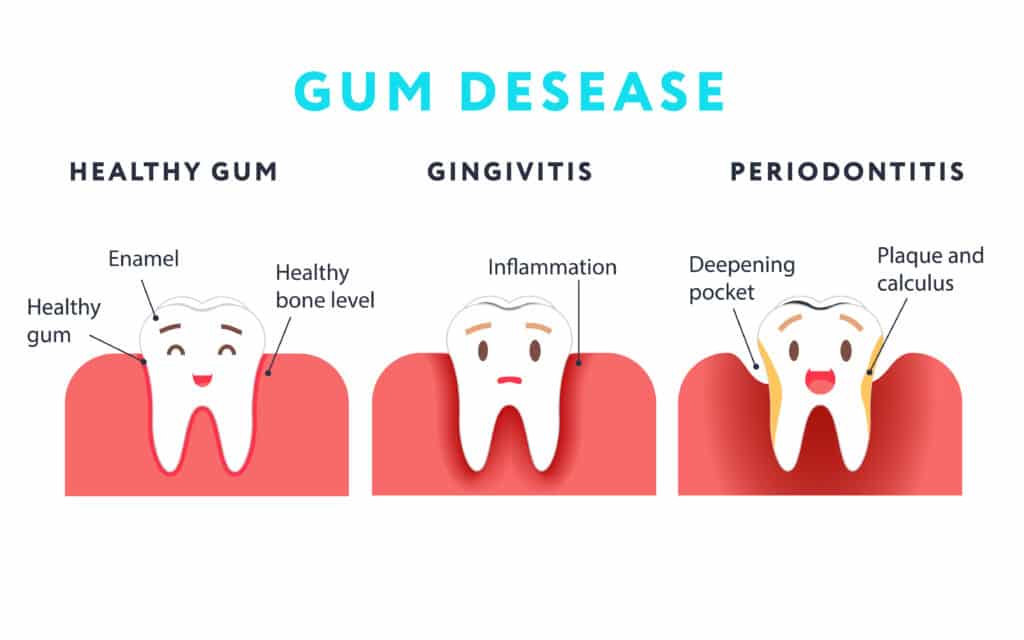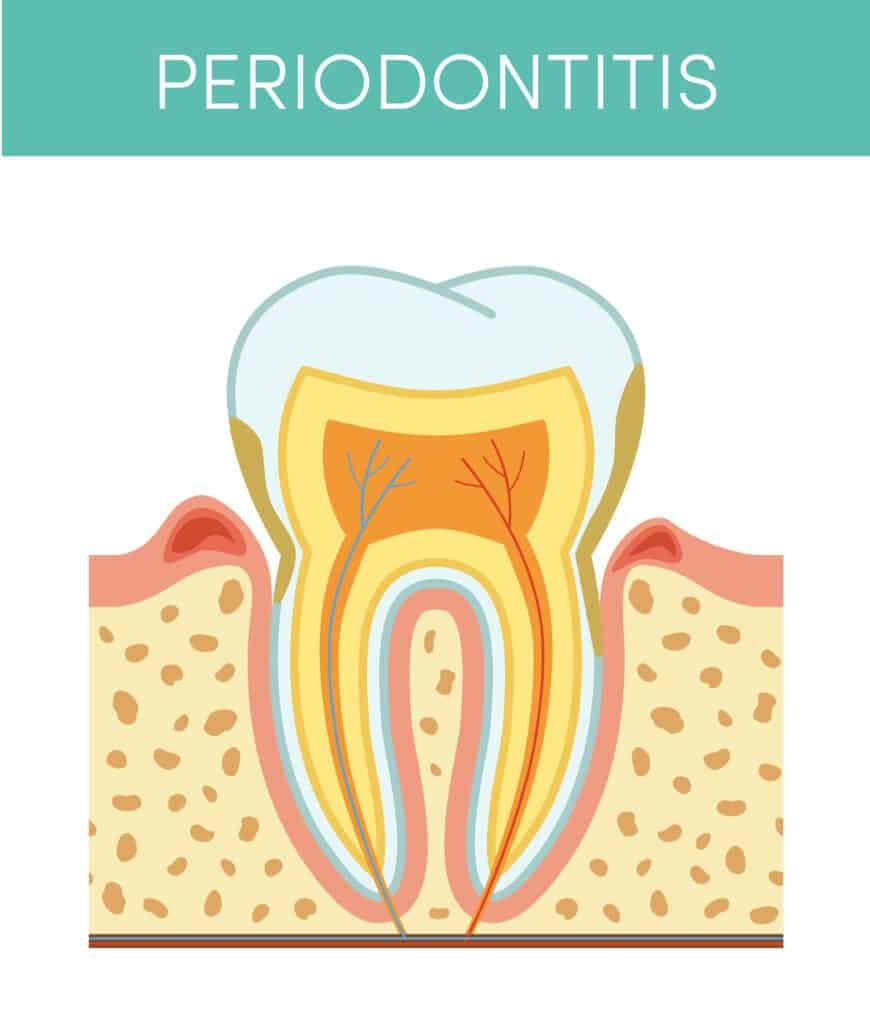Gum disease can reduce your ability to fight off bacteria
 Gum disease is an infection caused by bacteria that attacks the gums and bones around teeth. It can lead to tooth loss if left untreated. However, there are treatments available for gum disease if caught early enough.
Gum disease can cause inflammation and swelling in other parts of the body because it’s the result of a bacterial inflection. This may lead to damage to the heart, kidneys, brain, or joints. These chronic conditions can be life-threatening if left untreated.
Gum disease is an infection caused by bacteria that attacks the gums and bones around teeth. It can lead to tooth loss if left untreated. However, there are treatments available for gum disease if caught early enough.
Gum disease can cause inflammation and swelling in other parts of the body because it’s the result of a bacterial inflection. This may lead to damage to the heart, kidneys, brain, or joints. These chronic conditions can be life-threatening if left untreated.
Periodontal disease is associated with an increased risk of stroke
Stroke is a serious medical condition that causes permanent disability or even death. It’s also the leading cause of death in the United States, and it affects more than 800,000 people each year. Strokes are caused by either a blood clot that blocks an artery in the brain or bleeding in the brain, which is also called a hemorrhage. Brain cells start to die off rapidly when blood flow is blocked for longer than 30 minutes. This damage can be severe enough to make you lose some or all of your ability to speak clearly or move certain muscles on one side of your body. It can result in permanent paralysis.Gum disease puts you at greater risk for respiratory problems
Gum disease puts you at greater risk for respiratory problems. That’s because bacteria can spread from the gums to other areas of your body, including the lungs. Bacteria can cause inflammation in these areas and lead to a variety of conditions such as pneumonia or bronchitis that affect breathing. Here’s a look at three of the respiratory issues that these bacteria can affect:- Pneumonia: An infection in one or both lungs
- Bronchitis: An infection in the tubes that carry air into your lungs (bronchi)
- Asthma: A chronic lung condition where narrow tubes become inflamed due to allergies or irritation from chemicals or infections
Chronic periodontitis can increase your risk of metabolic syndrome leading to developing type 2 diabetes
A metabolic syndrome is a group of risk factors that increase the risk of developing type 2 diabetes. The most common symptoms of metabolic syndrome include central obesity, which is identified by a large belly, high blood pressure, high triglycerides which is a type of fat in the blood, low levels of HDL or “good” cholesterol, and elevated fasting glucose levels or impaired glucose tolerance.